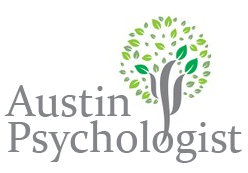Anxiety disorders are among the most common mental health challenges faced by many, including residents of Austin, TX. This section of our guide delves into the various forms of anxiety disorders:
- Generalized Anxiety Disorder (GAD)
- Social Anxiety Disorder (SAD)
- Panic Disorder (PD)
- Obsessive-Compulsive Disorder (OCD)
Each disorder presents unique challenges and symptoms, affecting individuals in diverse ways. Understanding these disorders is the first step toward effective management and treatment. We aim to provide insight into these conditions, helping Austin residents recognize symptoms and seek appropriate help.
Generalized Anxiety Disorder (GAD)
Generalized Anxiety Disorder (GAD) is a prevalent mental health condition marked by chronic, excessive worry that disrupts daily life. Individuals with GAD often find themselves in a persistent state of heightened anxiety, worrying about multiple aspects of everyday living, such as work, health, or relationships. This worry is disproportionate to the actual likelihood or impact of the feared events.
Symptoms may include restlessness, fatigue, difficulty concentrating, irritability, muscle tension, and sleep disturbances. GAD is not merely occasional stress but a continuous, often uncontrollable worry cycle that can significantly impair an individual’s quality of life.
In Austin, where life’s pace can be fast, recognizing and addressing GAD’s symptoms is crucial for effective management and treatment.
Social Anxiety Disorder
Social Anxiety Disorder (SAD), also known as social phobia, involves an intense fear of social situations where one might be judged or scrutinized by others. This fear can significantly hinder a person’s ability to interact, perform, or speak in public.
In Austin, where social events and networking are a part of the cultural fabric, SAD can be particularly challenging. Individuals with SAD often fear being embarrassed, humiliated, or rejected, leading to avoidance of social situations.
Common symptoms include excessive anxiety about upcoming social events, intense worry for days or weeks before the event, avoidance of social situations, difficulty making eye contact, nausea, trembling, and a strong desire to escape social situations.
Treatment typically involves therapy, such as cognitive-behavioral therapy (CBT), which helps individuals confront and manage their fears in a controlled and gradual manner.
Panic Disorder (PD)
Panic Disorder (PD) is characterized by sudden, unexpected panic attacks accompanied by intense physical and psychological symptoms.
These symptoms can include heart palpitations, chest pain, shortness of breath, dizziness, and a feeling of impending doom. Individuals with PD in Austin may find that the hustle of city life can trigger these attacks or increase their frequency.
Panic attacks can happen at any time, causing significant distress and impacting a person’s ability to function in daily life. The fear of having panic attacks can lead to avoidance behaviors, where individuals may shun places or situations where they’ve previously experienced an attack.
Effective treatments for PD include psychotherapy, medication, or a combination of both. Cognitive-behavioral therapy (CBT) is particularly effective, as it helps individuals understand their panic attacks and learn coping strategies to reduce their impact.
Obsessive-Compulsive Disorder
Obsessive-Compulsive Disorder (OCD) involves persistent, unwanted thoughts (obsessions) and repetitive behaviors (compulsions) that an individual feels the urge to perform in response to these thoughts.
Common obsessions include fears of germs or contamination, while compulsions might involve excessive cleaning or hand-washing. These rituals are performed in an attempt to reduce anxiety caused by obsessions, but they often only provide temporary relief and can dominate a person’s life.
In Austin, where there’s a growing awareness of mental health, recognizing and seeking help for OCD is important. Treatments like cognitive-behavioral therapy (CBT) and medication can be effective in managing OCD symptoms.
List of Resources
- Austin Anxiety and OCD Specialists:
- Website: austinanxiety.com
- Services: Specialized treatment for anxiety and OCD, offering individual therapy, group therapy, and workshops.
- Anxiety & Stress Clinic at UT Austin:
- Website: utexas.edu
- Services: Provides assessments, treatment, and research on anxiety and stress-related disorders.
- NAMI Austin (National Alliance on Mental Illness):
- Website: nami-austin.org
- Services: Offers support groups, educational programs, and advocacy for those affected by mental illness.
- Integral Care:
- Website: integralcare.org
- Services: Provides comprehensive services for mental health, substance use, and intellectual and developmental disabilities.
- The Anxiety Treatment Center of Austin:
- Website: anxietyaustin.com
- Services: Offers evidence-based treatment for various anxiety disorders, including individual and group therapy options.
- Mental Health America of Texas:
- Website: mhatexas.org
- Services: Advocacy, education, and services for mental health, including resources specific to anxiety disorders.
- Austin DBT Associates:
- Website: austindbt.com
- Services: Specializes in Dialectical Behavior Therapy, a treatment approach effective for anxiety and other mental health conditions.
